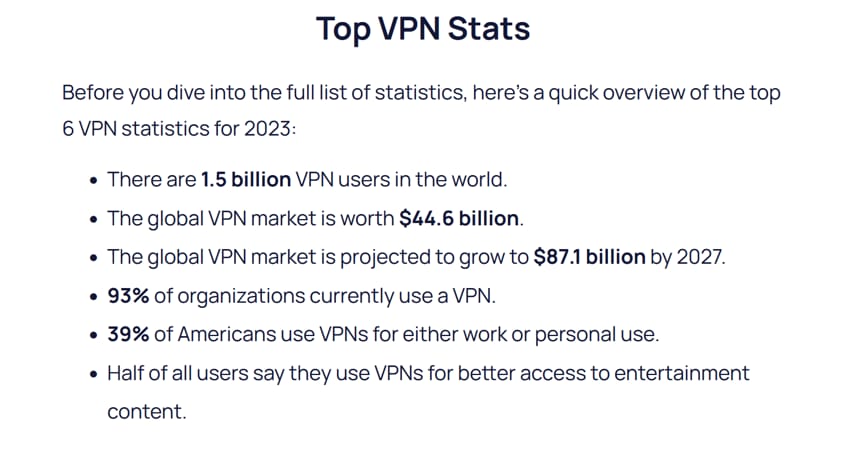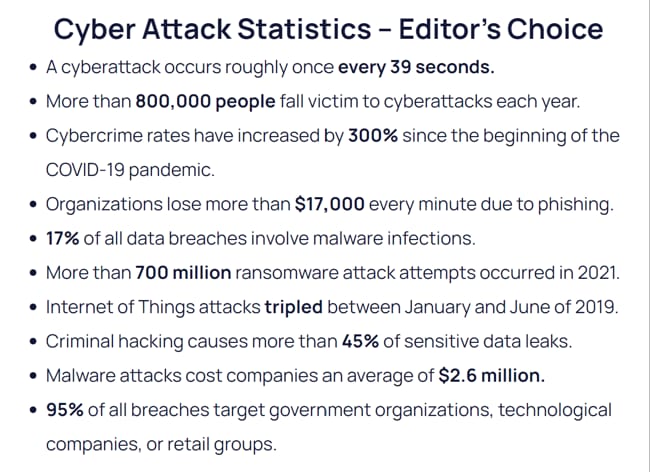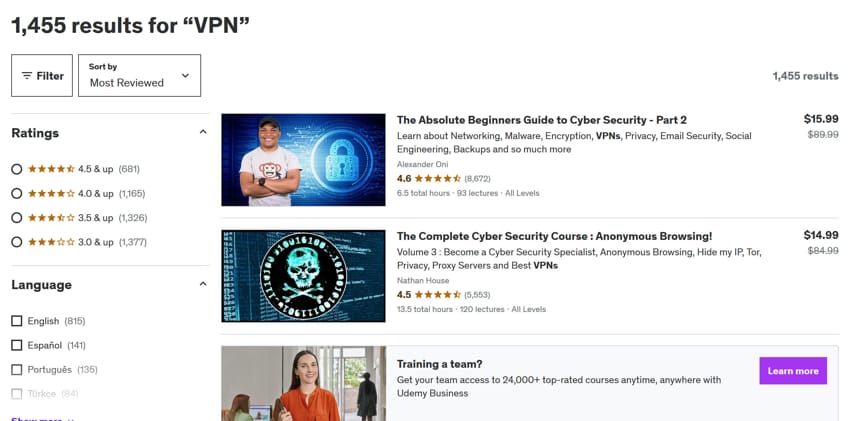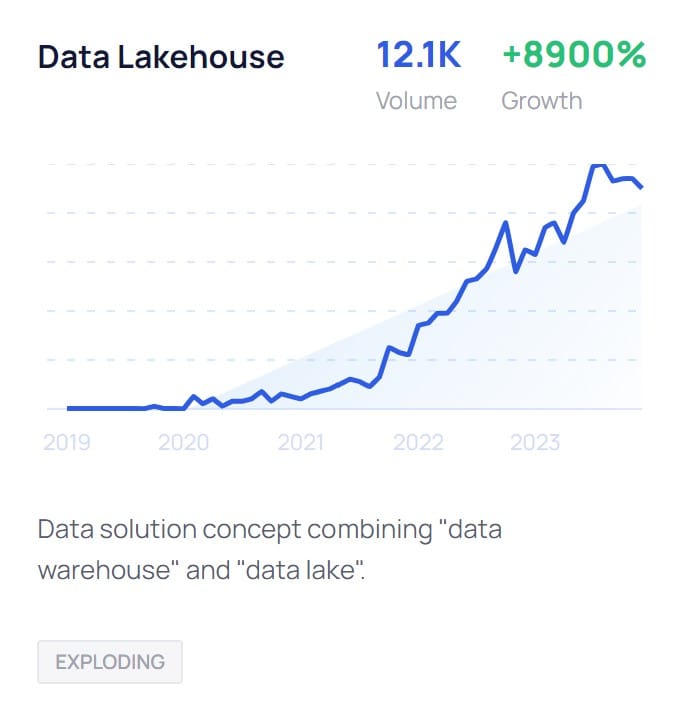Dissecting the VPN niche.
In today’s rapidly evolving digital landscape, where cyber threats are on the rise and remote work continues to be a norm, the role of Virtual Private Networks (VPNs) has become increasingly significant. As we witness an unprecedented expansion in connected devices and a surge in content streaming, the importance of secure online access is more pronounced than ever.
Understanding the Mechanics of a Virtual Private Network (VPN)
At its core, a Virtual Private Network, or VPN, serves as a critical tool in the digital security arsenal. Furthermore, it functions by creating an encrypted connection over a public network. Consequently, this encryption ensures that users can access private networks and browse the internet with enhanced security. Essentially, a VPN routes device traffic through an encrypted tunnel, effectively shielding the data from potential interception by cyber criminals. Additionally, this robust security measure provides peace of mind for users concerned about online privacy and data protection.

The practical implications of this technology are substantial. A VPN assigns your device a different server IP address, encrypts your internet traffic, and circumvents location-based restrictions. This trio of functions works together to obscure your geographic location, safeguarding your online privacy and anonymity. As a result, activities that would otherwise reveal your location, such as browsing and streaming, remain private and secure.
For instance, an everyday application of this technology is evident in how VPNs enable access to geographically restricted content. For example, a user in one country can use a VPN to connect to a server in another country, thereby allowing them to stream media content that is otherwise unavailable in their actual location. This capability not only enhances personal privacy and broadens the scope of accessible information and entertainment, exemplifying the versatile nature of VPNs in our interconnected world.
Key Functions and Benefits of a Virtual Private Network (VPN)
1. Creating Encrypted Connections:
A VPN establishes an encrypted connection over public networks at its most fundamental level. Moreover, this encryption is crucial for enhancing internet access security, allowing users to securely access private networks and browse the internet without exposing their data to potential cyber threats. Consequently, by creating a secure tunnel for data transmission, a VPN effectively prevents unauthorized access. Additionally, it provides an essential layer of protection for sensitive information in an increasingly digital world.
2. Shielding Data from Interception:
A VPN routes the user’s device traffic through an encrypted tunnel. This process effectively protects sensitive data from being intercepted by cybercriminals, thus ensuring the privacy and security of online activities.
3. Obscuring Geographic Location:
VPNs provide three key functionalities:
Firstly assigning a different server IP address to the user’s device.
Secondly, Encrypting internet traffic to maintain confidentiality.
Thirdly, They are bypassing location-based restrictions on internet content.
These functions conceal the user’s geographic location, thereby maintaining online privacy and anonymity. This means that personal browsing and streaming activities remain private and secure.
The Evolving Digital Landscape
The profound impact of VPN technology becomes increasingly apparent when we consider the evolving digital landscape. This realization is a crucial driver behind the anticipated surge in the VPN market. Here’s a deeper look into the underlying factors fueling this growth.
- Emerging Needs in Cybersecurity:
- As digital interactions become more integral to our daily lives, the need for robust cybersecurity solutions like VPNs grows. This isn’t just about avoiding data breaches; it’s about ensuring a fundamentally secure and private online experience in an age where such assurances are increasingly rare.
- Adaptation to a Changing Work Environment:
- The shift toward remote and hybrid work models has highlighted the importance of secure remote access. VPNs are pivotal in addressing these new dynamics, offering reliable and secure connections vital for the contemporary workforce.
- Global Digital Transformation:
- As businesses and consumers undergo a digital transformation, the reliance on cloud-based services and online platforms increases. This shift necessitates secure access methods, where VPNs stand as a critical solution to protect data integrity and privacy.
- Enhanced Public Awareness:
- There’s a growing public consciousness about the value of data privacy and the risks of online surveillance. This awareness is translating into proactive measures, with more individuals and organizations adopting VPNs to safeguard their online activities.
- Technological Advancements in VPN Services:
- Technological innovations are making VPNs more efficient, reliable, and user-friendly. As these services become more accessible to a broader audience, their adoption will likely accelerate.
- Diverse Applications of VPNs:
- VPNs are branching out beyond their usual roles. They’re also being used to protect the growing number of smart devices in our homes and workplaces, like smart thermostats and fitness trackers. Plus, they’re helping all sorts of businesses keep their conversations and data safe, no matter their industry. This ability to adapt to different needs is opening up exciting new possibilities for VPNs to grow and become even more helpful in our daily lives.”
By understanding these dimensions, we can appreciate why the VPN niche is not just poised for growth but could potentially redefine how we approach online privacy and security in future years.
The Digital Revolution: Navigating the World of Connected Devices
In the last decade, we’ve seen an extraordinary explosion in internet-connected devices. Today, over 6 billion smartphones are used globally, and nearly half a billion people wear smartwatches and fitness trackers. Tablets have also become more popular, offering the convenience of a mobile device with a screen large enough for creating content.
Alongside this, there’s been a parallel boom in the Internet of Things (IoT) – a network of connected devices that’s growing at an astonishing rate. By 2025, Gartner predicts we’ll see about 75 billion of these devices worldwide. They’re in our homes, in our cities, in factories, and even integrated into appliances. This network includes everything from self-driving cars and smart city infrastructure to advanced medical devices and cutting-edge industrial equipment, all constantly sharing data online.
IoT Has Changed Our Lives
This surge in mobile and IoT technologies has transformed our lives, offering unprecedented efficiency, insights, and experiences. However, with these advancements come new vulnerabilities. Billions of these devices are now endpoints, collecting and transmitting sensitive personal and operational data. Unfortunately, they often rely on fragile security measures, making them potential targets for modern hackers using sophisticated attack techniques.
As we increasingly depend on mobile platforms and smart environments, the risks become more pronounced. Imagine scenarios like hijacked video feeds, identity theft through wearable devices, or severe disruptions in city power grids or even medical devices like pacemakers. These aren’t just hypotheticals; they’re real risks that we face in our hyper-connected world.
Hoaxes use weaknesses in human behavior to ensure they are replicated and distributed. In other words, hoaxes prey on the Human Operating System.
Stewart Kirkpatrick
To combat these threats, securing our data in transit is crucial, and that’s where Virtual Private Networks (VPNs) come in. VPNs provide a critical layer of security by encrypting our online connections and masking the identities of our devices. They’re not just tools for privacy; they’re essential shields in our 21st-century digital lives, safeguarding everything from our personal information to the infrastructure we rely on daily.
The Surge of Smart Home and City Technologies: Risks and Opportunities
Unprecedented Growth in Smart Devices The landscape of smart home devices and smart city infrastructure is rapidly evolving. Currently in their early stages, these technologies are set to revolutionize our living spaces and urban environments. Smart home devices, including speakers, locks, cameras, and thermostats, are projected to grow at a compound annual rate of 23%. Meanwhile, cities are adopting sensor networks for transport, utilities, and civic operations, aiming to boost efficiency and sustainability.
Security Challenges in the IoT Era However, this surge in convenience comes with significant security trade-offs. The vast array of connected devices – from home assistants and smart meters to traffic signals and public transit systems – are collecting large amounts of data, much of which remains unprotected. In 2022, it was estimated that 95% of home smart devices lacked basic encryption, making them vulnerable to cyberattacks. Even municipal technology assets have already been targeted by high-profile cyberattacks, highlighting the urgent need for enhanced security measures.
Rising Cybersecurity Threats to Smart Infrastructure Cybercriminals are increasingly targeting these vulnerabilities. Moreover, Gartner says we can expect over 20 billion connected devices in homes and cities by 2030. Additionally, Juniper Research supports this projection, anticipating around 55 billion total IoT devices active within the next five years. Consequently, this expanding network provides cybercriminals with numerous opportunities to infiltrate systems integral to our quality of life. Furthermore, the increasing connectivity underscores the urgent need for enhanced cybersecurity measures to protect against potential threats.
VPN Solutions for a Connected World As the infrastructure continues to grow, possibly even at an accelerated pace, the need for robust security solutions becomes more pressing. Virtual Private Networks (VPNs) are emerging as a vital tool to secure both individuals and urban resources amidst this burgeoning IoT landscape. VPNs offer a way to encrypt data and protect the integrity of these rapidly expanding networks, playing a crucial role in safeguarding our interconnected world.
Top VPN Stats

“Passwords are like underwear: you don’t let people see it, you should change it very often, and you shouldn’t share it with strangers.”
Chris Pirillo
Real life Case Study: VPN Mentor’s Journey in the VPN Niche
VPNMentor has carved out a reputation as a top authority on virtual private networks (VPNs), renowned for its detailed testing methods and clear, honest reviews. Moreover, launched in 2014 by advocates passionate about online privacy, the website aimed to guide internet users through the maze of new VPN providers, some of which had dubious claims about security. Consequently, within just three years, VPNMentor’s commitment to providing in-depth, researched reviews and constantly updating their evaluations to reflect the changing market paid off. Furthermore, the site’s monthly visitor count soared to over 2 million.
A pivotal moment came in 2018 when the original founders sold most of their stake in VPNMentor for $7 million to a group of private investors. This influx of investment enabled the site to delve deeper into technical analysis, comparing things like VPN connection speeds, how well they detected malware, and their ability to overcome regional content blocks. As a result, the site’s traffic tripled, thanks to increasingly detailed reviews and insights that helped users find the best VPN service for their specific needs, considering factors like price, features, and how they planned to use it.
Today, attracting over 100 million visits annually, VPNMentor evaluates nearly every major consumer VPN available. They do this using their own rigorous testing framework, providing hard facts that cut through the often confusing marketing claims. This dedication to examining every aspect of the user experience has established VPNMentor as a go-to resource for finding high-quality VPNs in a market filled with average or even misleading options.
Why will the VPN Niche Continue to explode?
Cyber attack statistics
Cyber attacks have surged, with a notable 47% increase in incidents in 2022 alone. This escalation is primarily driven by the lucrative nature of cybercrime, now a booming $1.5 trillion industry. Ransomware and data hacking, in particular, offer high financial rewards, motivating increased attacks.
Expanded Vulnerabilities: The expansion of remote work and the proliferation of connected devices, like wearables and smart home appliances, have significantly widened the potential targets for cybercriminals. These new, often less-secured, endpoints provide numerous opportunities for unauthorized access to sensitive information. Consequently, organizations must prioritize securing these vulnerable points to prevent data breaches.

Lowered Barriers for Attackers.
Today’s online environment has made it easier for even novice hackers to launch sophisticated attacks. Readily available online tools and resources have lowered the barriers to entry, enabling a broader range of individuals and groups to participate in cybercrime.
The Role of VPNs in Mitigating Risks
In this context, the role of Virtual Private Networks (VPNs) becomes increasingly critical. VPNs offer a robust defense mechanism by:
- Encrypting internet traffic makes it difficult for hackers to intercept or decipher data.
- Masking users’ IP addresses helps maintain anonymity and reduce the risk of targeted attacks.
As cyber threats become more common and complex, individuals and businesses turn to VPNs to safeguard their digital communications and data. This reliance on VPNs for enhanced security is a primary driver behind the expected continued growth of the VPN market.
Angles You Can Use to Promote VPNs
VPN For Firestick
With streaming media consumption exploding, Amazon’s Fire TV Stick has become one of the most popular devices to access entertainment content. Its small size, low cost, and integration with platforms like Netflix, Hulu, and Amazon Prime make it an appealing choice. However, restrictions based on geographic licensing as well as WiFi network security risks mean more Firestick users are adopting VPNs to enhance privacy and unlock additional streaming catalogs.
Key Reasons For Firestick VPN Use
Geo-Restriction Bypass – VPNs allow Firestick users to mask their location, effectively tricking streaming platforms to provide access to shows/movies unavailable in their home country region. This banishes annoying blackout messages.
Public WiFi Protection
Connecting Firesticks to open hotel, airplane, or café WiFi poses major security risks of traffic snooping, which VPN encryption defends against by entirely securing connections.
ISP Monitoring & Throttling Prevention
VPN tunnels also prevent internet providers from seeing Firestick activity and interfering with speeds. This prevents throttling and stops ISPs from logging potentially private usage data.
In short, VPNs provide the same benefits of boosted security, circumvention of content locks, and safeguarding more private activity that appeals to every other internet-connected device. As Firestick adoption grows for accessing media, so too does the need for VPN protection.
VPN For Mac
Apple’s Mac laptops and desktops are popular choices known for intuitive interfaces and overall security. However, potential cyber threats and restrictive networks still necessitate utilizing a virtual private network (VPN) for enhanced privacy and access, especially effective when using MacBooks connected to public WiFi.
Reasons Mac Users Sign Up For VPN Services:
- Public WiFi Protection – VPN encryption ensures no snooping of sensitive Mac traffic when accessing open networks outside the home that are hotspots for hackers.
- Unblock Geo-Restricted Sites & Content – VPNs allow Macs to mask the user’s location, bypassing geographic restrictions on websites, video streams or music overseas.
- Torrent File Sharing Security & Anonymity – For Mac users downloading torrents, a VPN hides their IP address to avoid network throttling and maintain anonymity.
- Prevent ISP Tracking and Data Harvesting – VPN connections prevent an internet service provider from monitoring Mac online activity and aggregating sensitive personal usage data.
Mac VPN Setup Ease
Reputable VPNs offer user-friendly Mac desktop and mobile apps, along with detailed setup instructions tailored for Apple devices. Connecting only requires a few clicks and email registration. Top providers like ExpressVPN even offer 247 customer support if any configuration help is needed.
Overall, while Macs have strong integrated security already, adding a VPN enhances online privacy, anonymity, circumvention of restrictions and safe data transfer from anywhere – crucial for today’s highly mobile device users facing expanding digital threats.
VPN For iPhone
Top ways a VPN improves the iPhone experience:
- Public WiFi encryption. VPNs prevent snooping or hacking of iPhone traffic when connecting to open airports, or coffee shops.
- Unblock regional restrictions. By masking an iPhone’s location, VPNs allow access to blocked sites and content unavailable in certain countries or traveling abroad.
- Prevent IP address exposure. VPN services hide the iPhone’s identifiable IP address to avoid tracking, profiling, and identity theft by advertisers or cyber criminals.
- Secure mobile banking & payments. Encrypting WiFi and cellular connections via VPN creates more secure tunnels for transmitting private financial and login info.
- Bypass internet throttling – VPN usage prevents network providers from detecting high bandwidth activity like video streaming and throttling iPhone speeds.
Easy one-tap connectivity makes enabling iPhone VPN protection straightforward. With top providers like ExpressVPN, NordVPN, and others offering dedicated iOS. As mobile devices handle more confidential communications, VPN usage provides an added layer of mobile defense.
Promoting the VPN niche through Udemy Courses
Udemy has an affiliate program, so you can promote any of their 1455 courses on VPNs. VPN-focused courses align well with the high consumer demand for self-education. Udemy also provides course creators with robust affiliate tools to drive referrals. These include 50% lifetime commissions that continue paying partners long after the initial promotion ends. VPN-related courses also lend themselves well to niche topic expansion. The course creators can explore the array of technical aspects, individual solutions, and complementary tools. As Udemy handles all marketing, payments, course access, and student support, the affiliates can just promote. Overall, promoting expanding libraries around fast-rising interests like VPNs within receptive student communities can generate. more profit for affiliates.


Concluding the reasons why you should promote the VPN Niche.
At first, I vigorously evaluated popular VPN providers, scrutinizing their product offerings, affiliate commissions, and available promotional tools. NordVPN and IPVanish. ExpressVPN stood out for its industry-leading apps. Sizeable existing user bases are ripe for upselling, and affiliate commission rates hover around 30-60% of each new subscription payment.






